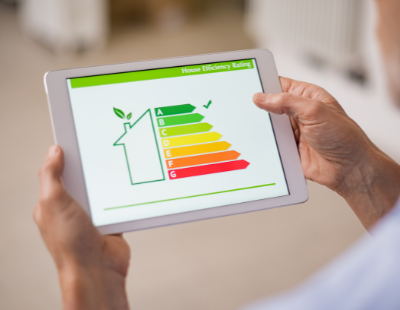
The current ratings of the Energy Performance Certificate are under review according to the Department for Business, Energy and Industry Strategy.
A department spokesman has told the Daily Telegraph: “Energy Performance Certificates provide useful guidance for consumers and businesses outlining how energy efficient buildings are in a simple and comparable manner.
“We are already looking at ways the system can be improved through our EPC Action Plan to ensure they are as accurate and effective as possible.”
The Telegraph says this review follows fears that under the current system installing a heat pump could make some properties appear less energy efficient rather than more, because replacing a traditional gas boiler can under some circumstances automatically cut an EPC rating.
The newspaper quotes Craig Mackinlay MP, chairman of the Net Zero Scrutiny group, as saying: "Given that heat pumps can actually increase energy use, on which EPC certification is derived, they could push a property that might have been rated C under an old method into D.
"That could make it both unrentable and possibly even unsaleable, if some of the more nonsensical Net Zero measures that we hear about are realised.”
The Telegraph reports that EPCs are currently based on an estimate of what it costs to heat a home rather than the carbon emissions generated. Heat pumps - which transfer thermal energy into a property from the ground or air - produce less CO2 than burning gas, but are not necessarily recorded as being cheaper to run.
The EPC system in England and Wales dates back to 2007 when they were part of the ill-fated Home Information Pack - initially for properties with four or more bedrooms, and then over time extended to smaller properties and other parts of the UK.
Now several mortgage lenders offer preferential rates to borrowers purchasing properties with good EPC ratings and the government has also proposed a voluntary target for lenders to improve the average rating of homes on their books to at least band C by 2030.
It is thought that only 10 per cent of the 22m dwellings in England and Wales get the top A and B grades with around 60 per cent having an EPC rating of D and below.
Under new proposed regulations, landlords may be required to make changes to their properties to improve the energy efficiency by 2025 for all new tenancies. This means bringing their property’s EPC rating up to a C or above. For existing tenancies, landlords have until 2028.












.png)


.png)




Join the conversation
Be the first to comment (please use the comment box below)
Please login to comment